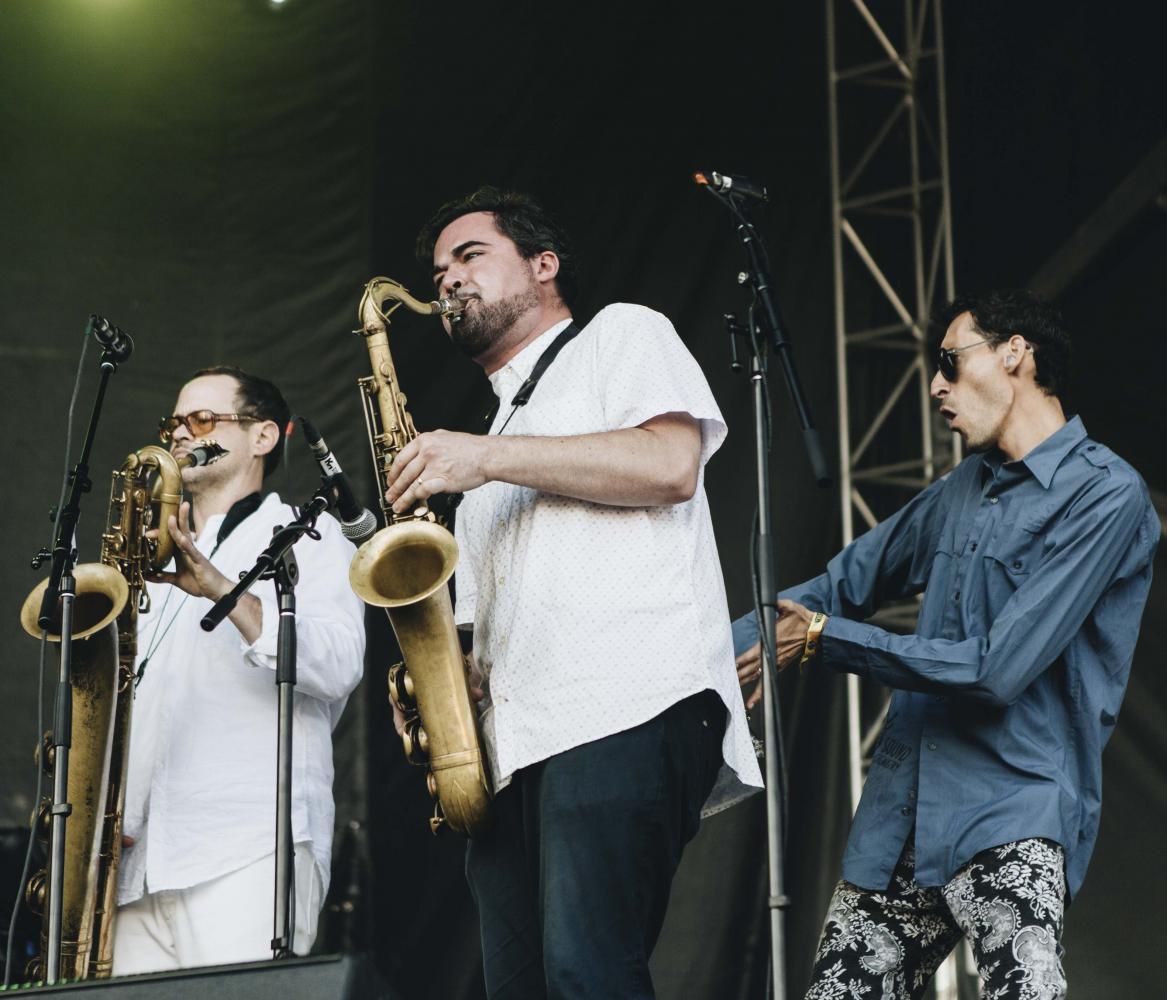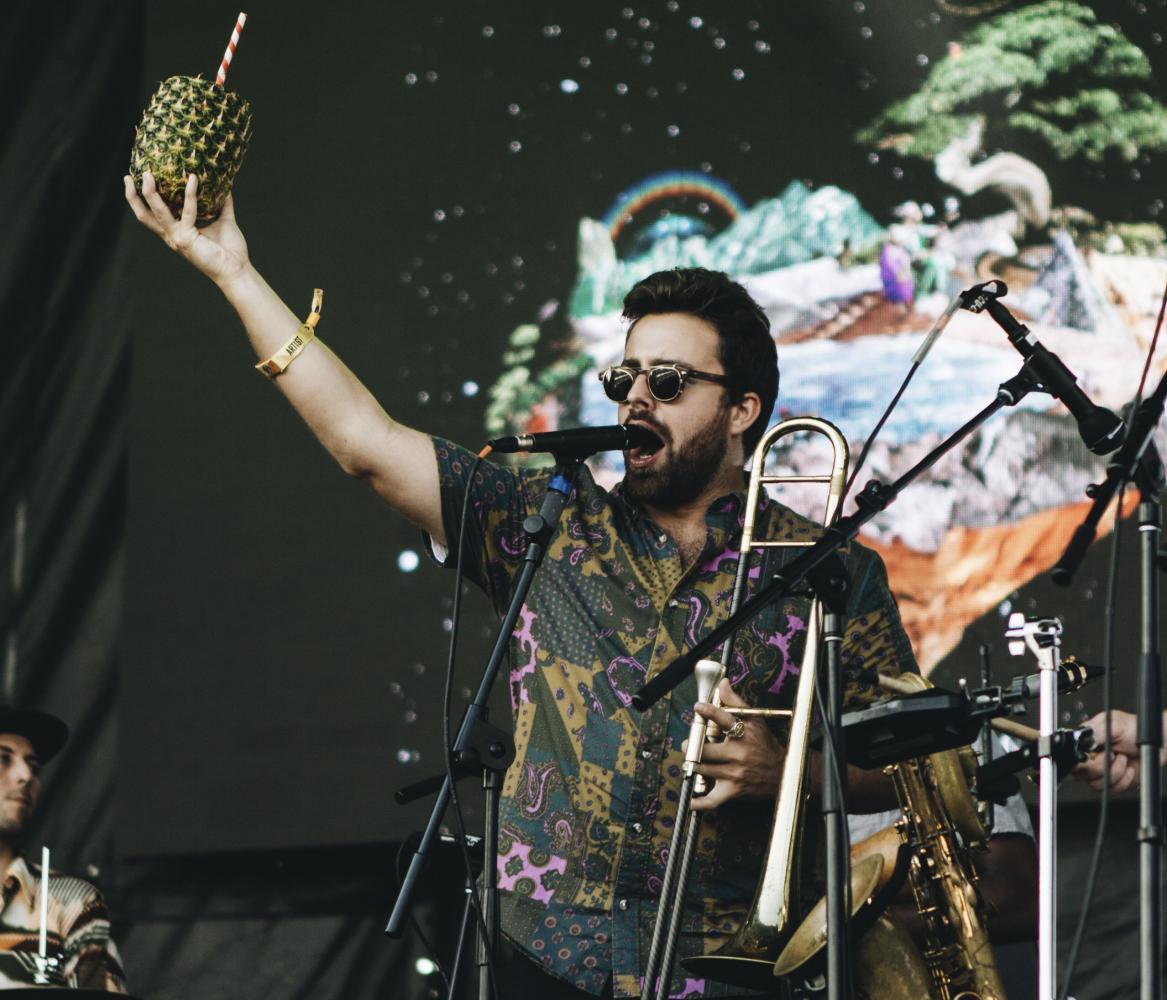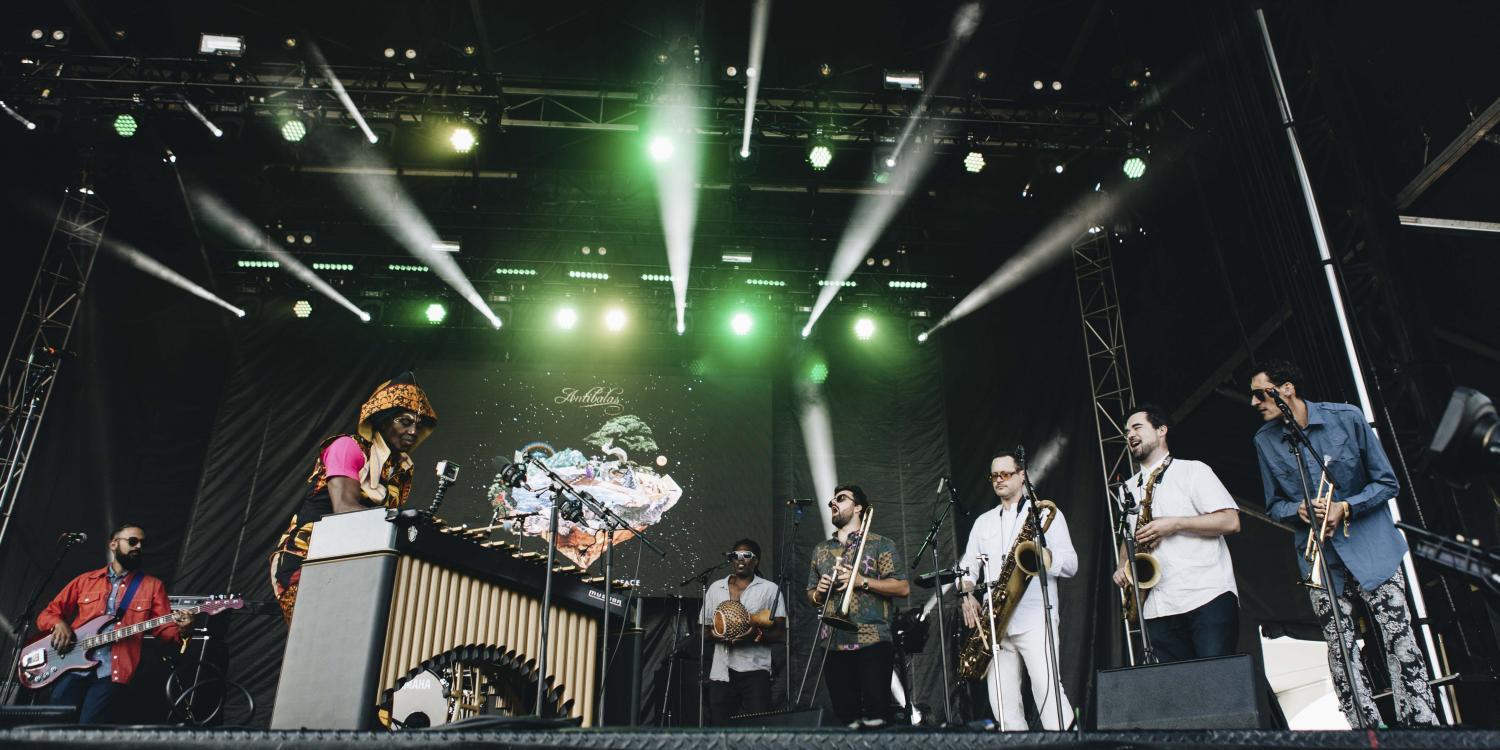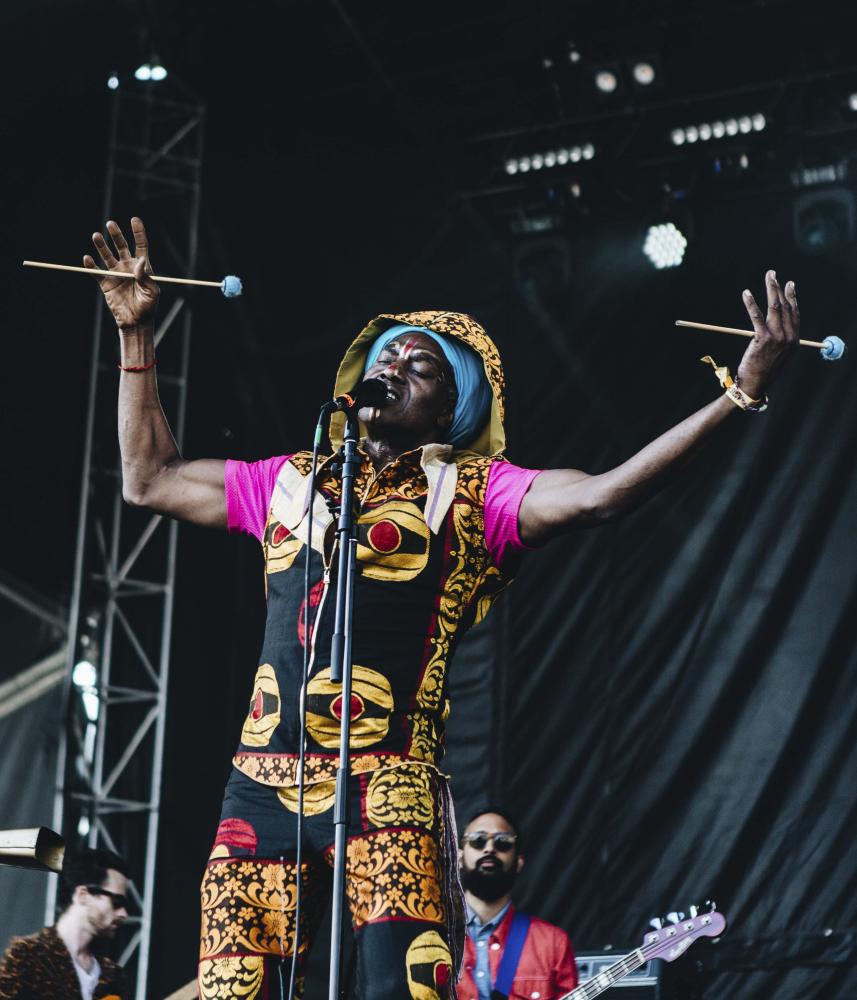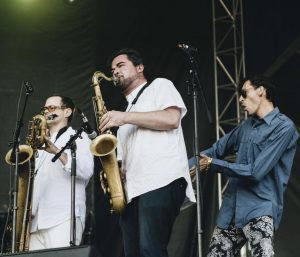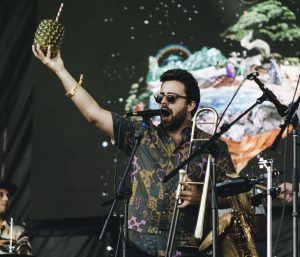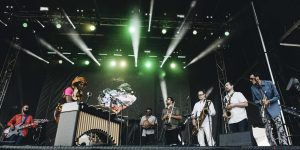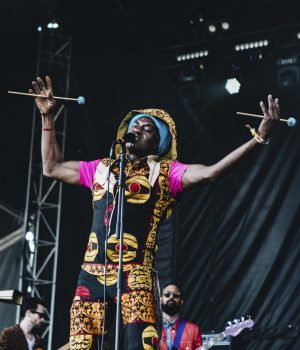Antibalas
October 10, 2017
Founded by group member Martín Perna, Antibalas is a funky afrobeat band that has stood the test of time. Formed in 1998, the group has seen generations of members and number of personalities. A number of group members have been NYU students and alumni, including Perna. They played NYU’s Strawberry Fest a couple of times during the early 2000s, and from there have performed across the country and around the world. They recorded the iconic horn section of Uptown Funk and have played on Saturday Night Live. With a new album, they continue to evolve as a group and move toward a future of peace through music.
WSN: Your group has been around for a number of years now, could you tell us about what direction you are going moving forward, career-wise, sound-wise, et cetera?
AMAYO: Our direction is forever expanding, shifting, and it’s constantly evolving — in dealing with the personnel that we have at every given time, as well as song choices, like when we decided to start composing certain material we can usually shift some of the instruments. Our latest album, we included vibraphone, I think we also incorporated some other special effects.
MARTÍN: Yeah, some more different types of rhythms.
AMAYO: And then we brought it some rock sounding guitar, so there are some pretty interesting sounds happening, and I can see that evolve into different areas as we move forward.
WSN: Could you talk about the origin of your group’s name?
MARTÍN: The group’s name is Antibalas. Literally in Spanish that means anti-bullets. It also means bulletproof and it’s a good descriptor of music, it’s very durable, it’s very resistant, but it also is anti-bullets. It promotes peace, it promotes discussion and dialogue and unity rather than resorting to arms to try and solve problems.
WSN: What was your process of coming to where your sound is today?
JORDAN: I think Amayo made a very important point there, it’s that it has so much to do with the evolving membership of the group, the individuals that come in and understand that they’re there to fulfill a role, to be in service of the music their instrument and the way that they approach it. And at the same time and collectively, as new members come through, 20, 30 or more players over 20 years, the sound is naturally going to change just because of the way that people play together, the way that people hear rhythms together, the way that people approach writing music together. I found mostly that the evolution of the music has to do with the personalities of the group and who’s stepping up and providing the most material, making suggestions for the newest cover song and figure out who in the band is going to come forward with their sound and help to lead the new direction of music.
WSN: What can we expect from you in the future? What’s next?
MARTÍN: We just put out a new record that dropped yesterday, Sept. 15, it’s called “Where The Gods Are In Peace” and that’s on Daptone Records and we’re currently on tour throughout the United States, a few Canadian dates, Japan, overseas. And we’ll be doing that and trying to get back in the studio as soon as we can to make another record.
WSN: Before our interview, you were talking about Strawberry Fest at NYU, which you played a number of years back. Could you reminisce a bit?
JORDAN: Well … there were a few, um, illegal …
AMAYO: I want to establish, they were natural, they were natural.
JORDAN: There were suitable transgressions at those early Antibalas shows, a couple of which happened to be at Strawberry Fest. There were some acts of resistance and I think the student body appreciated it in regards to our performance there.
MARTÍN: A bunch of us went to NYU, a lot of the earlier members, and that’s where a lot of us got to know each other. At one of the Strawberry Fests, we were particularly fired up and took a small pile of money and burned it on the steps of the business school and it was a lot of fun to watch these business students just lose their minds. “You can’t do that, that’s money!” We probably burnt like $17 and had $3000 worth of fun watching these business students lose their minds.
WSN: Is there anything else that you’d like to add?
AMAYO: I was going to add to what we were saying about what to expect. I think, I think we will expect something exciting, we’ll see more flash, we’ll see more acting, more storytelling, more costumes. There are a lot of really exciting things to come, so I’m particularly excited about the uphill, stepping up to new costumes, so that’s the next level.
MARTÍN: Yeah, the thing that I was just thinking with this band is that we are a slow burn. It’s like a cathedral, and cathedrals take generations to build. To build a cathedral, you need lots of people who don’t get paid any money.
AMAYO: And believers! Believers is probably the first word.
MARTÍN: Yeah, and well, in the traditional sense, the pyramids, the cathedrals, they were all built with slaves. We don’t have any slaves, so we’re the architects, but we also do all the heavy lifting and with that in mind, to build these big grand things, it takes a long time. It takes generations. You could put up a building like this [portable], you don’t even need human beings to make a building like this, you can automate it. But what we’re doing is building something that is beautiful, that will stand the test of time and will hopefully outlast us. And hopefully, I would love to see an Antibalas after all of us are gone, that there’s an Antibalas with people with the same core values that keep it up, that keep the togetherness up, the mission up, and hopefully this beautiful thing we’ve created will outlive all of us.
Email Anna Letson at [email protected].











































































































































